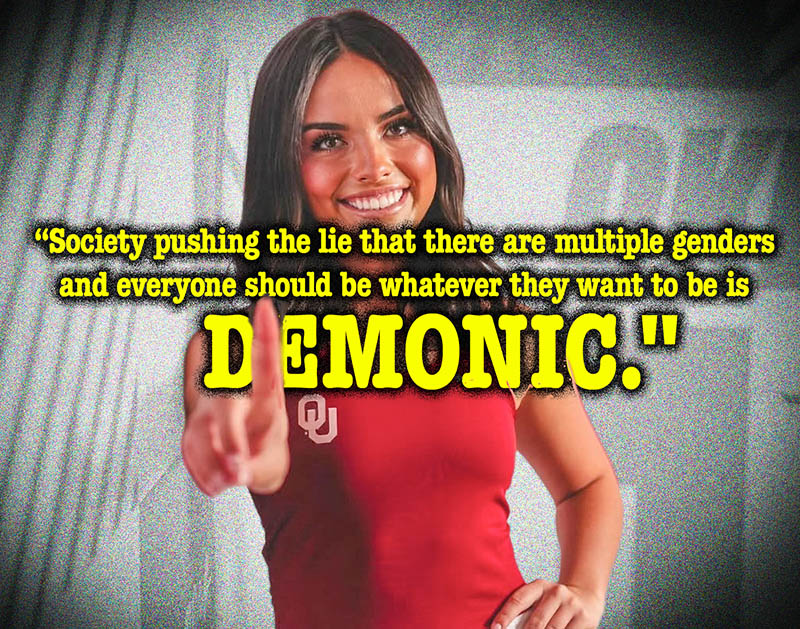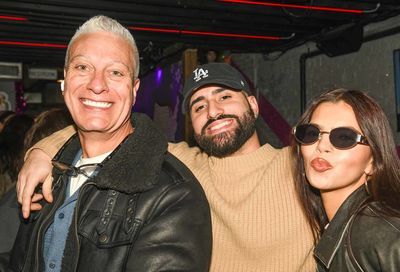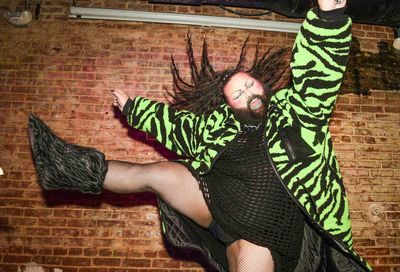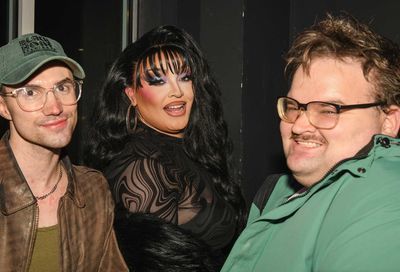Photographer who opposes gay marriage sues to overturn Louisville’s Fairness Ordinance
Chelsey Nelson claims LGBTQ nondiscrimination law could force her to violate her beliefs by photographing same-sex weddings

A Christian photographer who opposes same-sex marriage is suing the city of Louisville over its Fairness Ordinance prohibiting discrimination against LGBTQ people.
Chelsey Nelson, the owner of Chelsey Nelson Photography, alleges in her lawsuit that the city’s Fairness Ordinance puts her at risk of “limitless damages” if she refuses to create photographs for, blog about, or participate in same-sex wedding ceremonies.
Nelson’s argument is hypothetical, as she has yet to even be asked to photograph a gay wedding.
Her lawyers, with anti-LGBTQ hate group Alliance Defending Freedom, claim the Fairness Ordinance forces Nelson to: stay true to her beliefs and violate the law by refusing to offer her services to same-sex couples; follow the law and thereby violate her personal religious beliefs opposing homosexuality; or close her business in order to avoid violating the law, reports The Courier-Journal.
Nelson is also asking the U.S. District Court for the Western District of Kentucky to block city officials from enforcing the ordinance, arguing that it violates her right to freedom of speech, freedom of religion, freedom of association, as well as her right to due process under the Fourteenth Amendment.
Although Nelson has never been asked to provide services for a same-sex wedding, she and her lawyers are filing the lawsuit as a “pre-enforcement challenge” to ensure she will not be forced to do so in the future.
“Louisville is using the threat of limitless damages, compliance reports, posting of notices, and court orders to force Chelsey to create photographs for, blog about, and participate in solemn ceremonies she disagrees with — same-sex wedding ceremonies,” the lawsuit reads.
Nelson and her lawyers additionally seek to cast the photos she takes as an extension of her freedom of expression, and any attempt to force her to photograph same-sex couples as a form of compelled speech or censorship.
Similar tactics have been used to successfully argue that a Colorado baker should have a right to refuse to bake a wedding cake for a same-sex couple and that an Arizona calligraphy business should be exempt from having to provide invitations for same-sex weddings.
Another similar case involved a Lexington-based printing business that refused to make T-shirts for the city’s annual gay pride festival. The Kentucky Court of Appeals ruled that the owner of Hands On Originals did not violate Lexington’s Fairness Ordinance because he was not discriminating against LGBTQ people categorically, but rather had a right to refuse to promote a message with which he disagreed.
The Kentucky Supreme Court later dismissed the lawsuit, but did not embrace the reasoning of the Court of Appeals. Rather, the lawsuit was dismissed because the lawsuit was brought by a group, instead of an individual.
“We don’t force LGBT web designers to create content condemning same-sex marriage for a church,” Nelson’s lawyers say in her pre-enforcement challenge. “Or force Muslim printers to design anti-Islam flyers for a synagogue. The First Amendment protects these speakers’ freedom. Louisville should not take the same freedom away from Chelsey just because she wants to speak in favor of one particular view on marriage.”
The lawsuit refers people to two directories from Wedding Wire that list photographers in Kentucky who will agree to photograph same-sex weddings to demonstrate that LGBTQ people have other options besides having to patronize Nelson’s business or those owned by others who oppose same-sex marriage.
But Chris Hartman, the director of Kentucky’s Fairness Campaign, says Nelson’s lawsuit is “ludicrous” and “a fishing expedition” that is attempting to get a sympathetic judge to completely overturn the Fairness Ordinance and give people carte blanche to discriminate against LGBTQ people.
He added that the intent of the Fairness Ordinance is simply to ensure that if a business is open to the public, it should serve all customers equally.
Hartman told The Courier-Journal that what Nelson and her lawyers are asking the court to do is overthrow the premise on which all civil rights laws are based: that people who are part of any protected class have the right to seek recourse when they are denied goods or services because of their identity.
“This has been an instrumental part of civil rights laws since the Civil Rights Act passed in 1964,” he said. “And so to challenge it today, nearly 60 years after the Civil Rights Act passed, and 20 years after the Fairness Ordinance passed, is ludicrous and speaks to how low the Alliance Defending Freedom is willing to go to undermine LGBTQ civil rights and in fact, civil rights for all people.”
Read more:
New York man thrown onto subway tracks in anti-gay attack
Young Americans oppose restrictions on bathroom use for transgender people
“Open to All” campaign partners with Yelp to release its first holiday gift guide
Support Metro Weekly’s Journalism
These are challenging times for news organizations. And yet it’s crucial we stay active and provide vital resources and information to both our local readers and the world. So won’t you please take a moment and consider supporting Metro Weekly with a membership? For as little as $5 a month, you can help ensure Metro Weekly magazine and MetroWeekly.com remain free, viable resources as we provide the best, most diverse, culturally-resonant LGBTQ coverage in both the D.C. region and around the world. Memberships come with exclusive perks and discounts, your own personal digital delivery of each week’s magazine (and an archive), access to our Member's Lounge when it launches this fall, and exclusive members-only items like Metro Weekly Membership Mugs and Tote Bags! Check out all our membership levels here and please join us today!



























You must be logged in to post a comment.